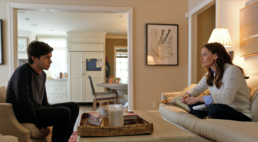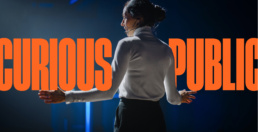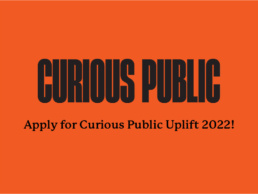We don’t know everything. We couldn’t possibly. I remember when I was a kid, the school library had beautiful editions of Encyclopedias and that was knowledge, leather bound in alphabetical order. Then the internet came, and it’s safe to say no one has finished reading it. So, not knowing is a truth in life, and in business, and that’s okay. In fact, that’s where the fun starts.
Watching my son these past six years (his whole life) is – as every parent knows – a hearty serving of joy. Kids arrive like an empty page. They cram as much knowledge in as they can: from language, to how things work, and their place in the space-time continuum. Every one of my son’s discoveries are punctuated with wide eyes, and a huge grin.
“When we open ourselves to not knowing, we make room for discovery.”
From my own upbringing, I’m pretty sure by the time I was 16 I knew it all. I completed high school and university confident that I had things figured out and that everything I was doing in my studies and beyond was just fine tuning.
As the adage goes, the older I got, the less I knew. I no longer felt I had it all figured out. To help ease my worry, I began treating learning like a hobby. My husband and I would watch documentaries on all kinds of topics, share articles we found interesting, always have a “google machine” close by on road trips so we could satisfy our curiosity about passing landmarks, named-afters, and the next community. Two writers, we considered it ‘date night’ to workshop each other’s latest drafts, and we used “track changes” as a love language.
When I became a widowed mom at the age of 36, that’s when I learned that I don’t know anything. And I’ve never been wiser.
Socrates — as Plato paraphrases — said, “I know that I am intelligent, because I know that I know nothing.” The Gadfly, as Socrates was known thanks to his determined and goading approach to questioning the politics and establishments of ancient Athens, claimed that no one knows anything, but his knowledge of his own ignorance was what helped make him smarter than the rest.
When I was a sales rep for a heritage Canadian mountain bike brand, I never went into an account brandishing a catalog and an order form, telling shops I had what they needed. Instead, I arrived with nothing more than an appointment and my curiosity. With questions, openness to not knowing, and enough curiosity and commitment to have a conversation, I helped small business owners uncover problems that were holding them back, learned what was working and what they’d already tried, and earned the role of trusted advisor for my insights and experience working with others just like them. Closing a deal — something I did a lot of — was simply a side effect of building a true partnership.
Now, when we write narratives and strategy for our partners at Curious Public, I feel much the same way. When we run through what our President, Lloyd Rang, likes to call the “Elephant Exercise,” — based on the Buddhist text about six blind men describing a pachyderm — we’re learning about our client’s challenges, and opportunities from all different points of view. Coming to the table with the knowledge that we don’t know makes room for truth, more than trying to force a conversation into a rubric, form, or template. When we open ourselves to not knowing, we make room for discovery.
“My questions were how I helped guide and leverage the expertise of others.”
Here are some things I have discovered midway through my career in business development and communications:
1. Don’t go anywhere without your compassion.
For yourself, and for the people around you. Combining curiosity with compassion helps build trust and empathy. It makes room for safety in communication so that the right questions (even the hard ones) can surface, and thoughtful, open dialogue can take place.
2. There is value in not knowing.
Sometimes, having the questions is more important than knowing the answers. For example, my late husband needed a nasogastric tube. After more than 200 days with it in place, the benefits of leaving it in started to outweigh the risks of taking it out. I asked question after question to figure out how we could remove it, and we ended up with a totally bespoke procedure that had never been done before, fully from the creative minds of the surgeon and medical team we worked with. Do I have medical training? No, but my questions were how I helped guide and leverage the expertise of others.
3. You can’t do it alone.
We need all different lenses, perspectives, and angles to see a problem or challenge clearly. Your own expertise isn’t enough and asking for help comes from a place of strength.
At Curious Public, while we know we don’t know everything, we do know some things, such as “how to find out.” Our bench strength is built on decades of experience in almost every sector, and every industry. When you ask Curious Public for help, you get the benefit of tactics and insights we’ve honed and refined, and then customized for you. We create compelling, tailored content and offer specific, strategic advice for organizations that want to stand out. We do that by asking you the right questions and using our insights to build narratives, strategies and campaigns that are bespoke to your organization and its leaders.
As a team, there isn’t much we haven’t seen, and yet every story starts the same way: with a blank page. Your blank page. Shaped by the challenges and climate you operate in. That’s why it was so important to us to have “Curious” in the name. It’s who we are. It’s what we do. It’s how we do it. Let’s get curious.
Are you or your organization in need of tailored, compelling narratives, content, or strategy? We’re here to help! Contact us for more information or check out our training workshops.
Kristen Gross
Senior Consultant and Writer, Curious Public


